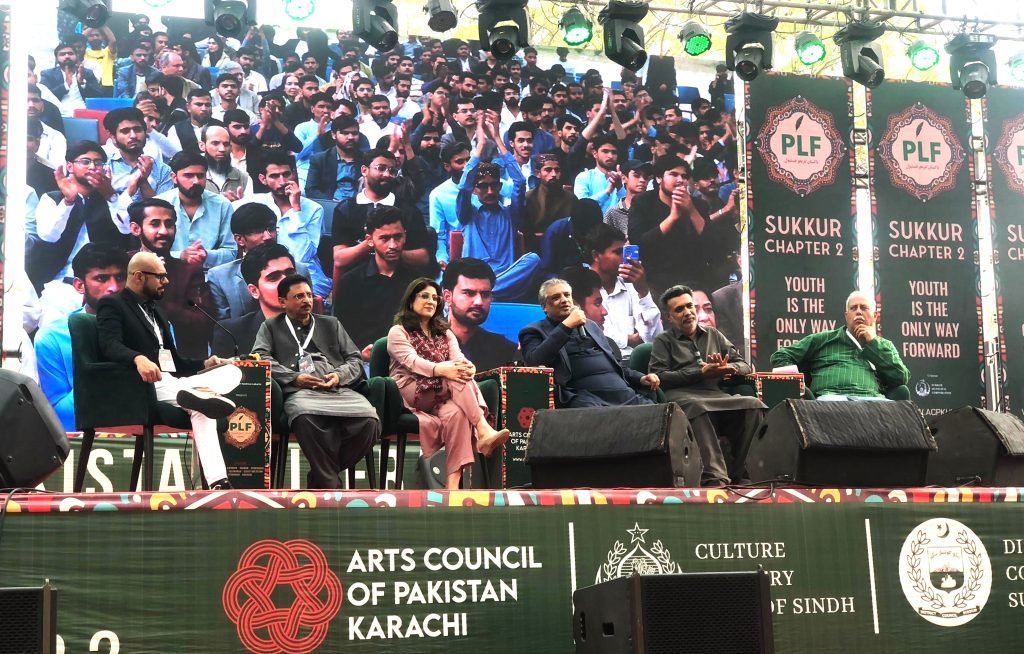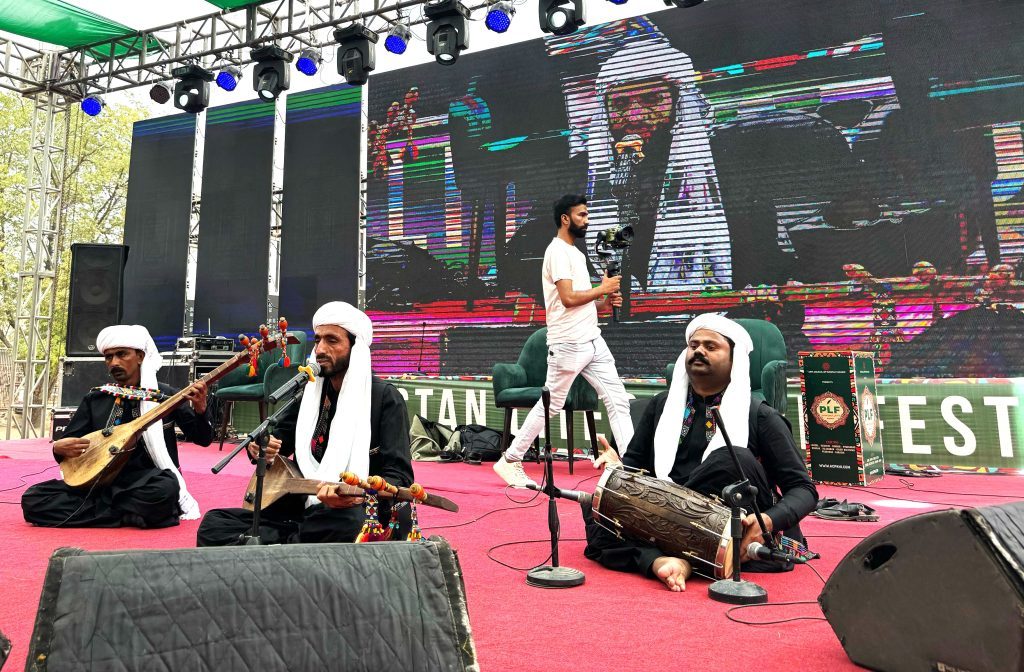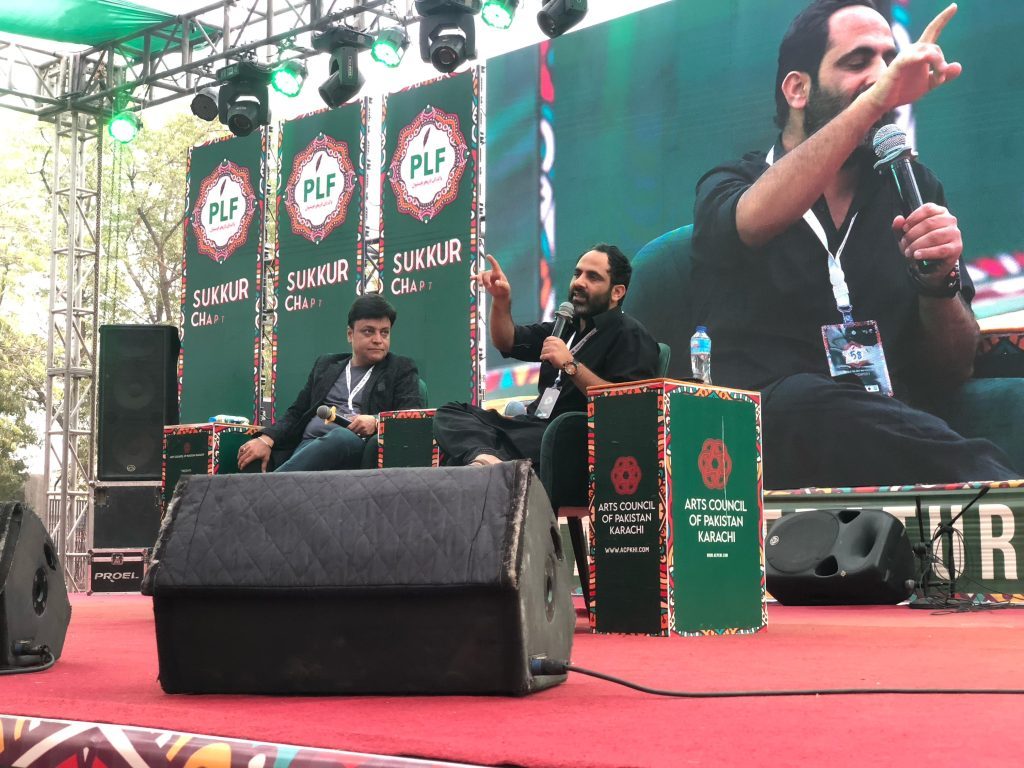
By Imtiaz Hussain
SUKKUR: The Pakistan Literature Festival Sukkur Chapter II, organized by the Arts Council of Pakistan Karachi, came to a resounding close at Sukkur IBA University, drawing tens of thousands of visitors in a vibrant two-day celebration of literature, art, and culture.
With an array of literary sessions, debates, poetry readings, musical performances, book stalls, handicraft exhibitions, and cultural showcases, the festival captivated students, scholars, poets, and the general public alike. Throughout the festival, discussions tackled a broad spectrum of issues, ranging from the future of leadership in the digital age to the challenges of employment for Sindh’s youth, the evolving landscape of Sindhi literature, and the impact of digital media on the film and television industry.

Sessions on violence against women, the state of Pakistan’s economy, and the quality of education provoked thoughtful conversations, while tributes were paid to the late Aakash Ansari, a figure deeply cherished in literary circles. The festival also saw a strong poetic presence, with celebrated poets Tehzeeb Hafi, Ali Zaryoun, Umair Najmi, and Imran Aami engaging in one-on-one sessions that struck a particular chord with younger audiences. A grand Mushaira gathered poets from across the country, their verses weaving together the emotions and struggles of a nation.
As night fell, the festival transformed into a spectacle of music. A special Sufi Night at the Sukkur IBA University Cricket Ground enthralled audiences with the soul-stirring performances of Hamza Akram Qawwal & Group, Sanam Marvi, and Ahsan Bari. The grand finale was nothing short of electric—Ali Azmat, Havi, Akhtar Chanal Zahri, Khudgharz Band, Arman Rahim, Mustafa Baloch, and Gizri took the stage, leaving the crowd in a state of euphoric celebration.

President of the Arts Council of Pakistan Karachi, Muhammad Ahmed Shah, and Vice Chancellor of Sukkur IBA University, Asif Ahmed Shaikh, attended the closing ceremony. Addressing the audience, Muhammad Ahmed Shah spoke of the transformative power of education, stressing that an increase in the education budget was crucial for national progress. His words carried a sharp reminder of Sindh’s educational crisis, with over 10 million children out of school and many others lacking access to modern, quality education.
The festival was not just about performance and discussion; it also brought together policymakers and cultural figures to reflect on Sindh’s future. Sukkur Mayor Arslan Islam Sheikh and Sukkur District Council Chairman Kumail Haider Shah engaged in discussions on the province’s cultural and economic trajectory, adding a layer of civic engagement to the literary extravaganza. The Pakistan Literature Festival Sukkur Chapter II was more than an event—it was a movement, a reaffirmation of the power of literature and the arts to bring people together, to challenge, to inspire, and to celebrate the cultural richness of Sindh.



